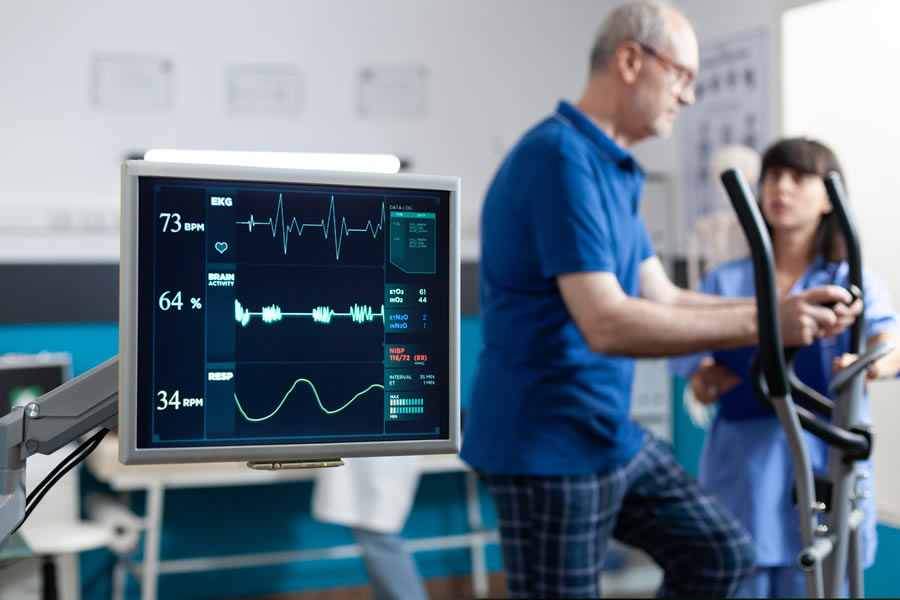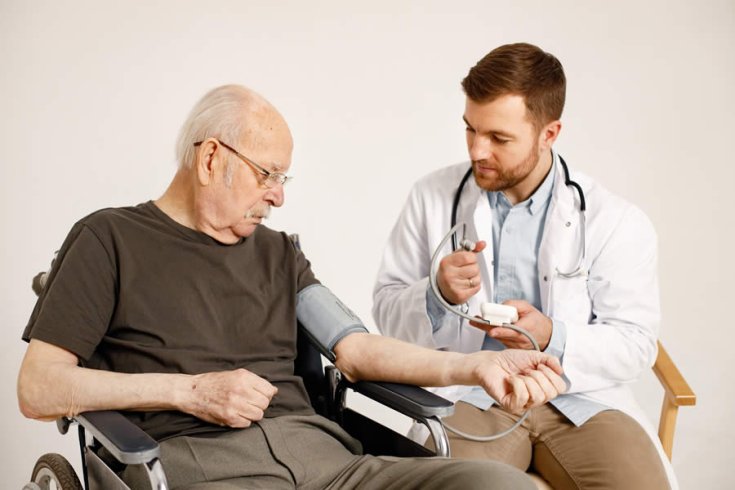When you meet with a cardiologist for the first time, it’s normal to wonder what kinds of tests they will order and why. At Capitol Cardiology Associates, patients usually want to know which tests they may need and also what the results can reveal. If you have ever had questions about stress tests, echocardiograms, or heart monitors, keep reading for a breakdown that will help you stay informed and prepared.
Electrocardiogram
An electrocardiogram, or ECG, is often one of the first tests a heart doctor will run. Small sensors are placed on the chest, arms, and legs to record the electrical signals that make the heart beat. The test is painless and takes only a few minutes, yet it can reveal a great deal. Cardiologists use the ECG to check for abnormal rhythms, evidence of a past heart attack, or changes that suggest strain on the heart. Sometimes the results show patterns that are perfectly normal and offer reassurance. Other times, the recording highlights irregularities such as atrial fibrillation or ventricular tachycardia, which need closer follow-up. Think of it as a snapshot of the heart’s electrical wiring. An ECG allows doctors to catch problems at a stage when treatment can be effective and preventive care is possible.
Echocardiogram
While the ECG shows rhythm, the echocardiogram shows structure and function. This test uses ultrasound waves to create live images of the heart as it pumps. A technician places a probe on the chest, and the machine translates the echoes into moving pictures. With this test, cardiologists can see the size of the heart chambers, how the valves open and close, and how well the muscle squeezes with each beat. The images also show whether there is fluid around the heart or signs of congenital abnormalities. The echocardiogram is especially helpful for patients with murmurs, heart failure, or suspected valve disease. It guides decisions about medication, surgery, or lifestyle changes. Unlike still X-rays, this test gives real-time motion, making it possible to see how blood flows through the heart. An echocardiogram shows how blood pressure inside the chambers is managed and whether the flow is smooth or obstructed.
Stress Testing
Every day life rarely keeps the heart at rest, which is why doctors often order a stress test. This exam records how the heart responds to exercise or medication that simulates exertion. Patients walk on a treadmill or pedal a bike while connected to monitors that track rhythm, blood pressure, and oxygen levels. The goal is to see how well the heart keeps up with increased demands. If blood flow to the heart muscle is limited by blocked arteries, the test may reveal chest pain, shortness of breath, or abnormal rhythms. Sometimes the test is paired with imaging, such as nuclear scans or ultrasound, to visualize changes in blood flow more precisely. Stress testing is useful for patients with chest discomfort, unexplained fatigue, or risk factors like diabetes or smoking. It helps cardiologists determine whether arteries are narrowed, whether medication is working, and whether further treatment like angiography is needed.
Advanced Imaging
Cardiologists sometimes need a closer look with advanced imaging. Cardiac CT scans can show calcium buildup in the arteries to help measure the risk of coronary disease before symptoms appear. A coronary CT angiogram uses dye to make blockages visible and can sometimes replace traditional catheterization as a noninvasive option. Cardiac MRI produces detailed images of the heart’s structure and tissue. Doctors rely on it to assess scarring after a heart attack, diagnose heart muscle problems, or prepare for complex surgeries. Nuclear stress testing works differently: a small amount of radioactive tracer is injected, and scans track how it flows through the heart muscle at rest and under stress. These images reveal which parts of the heart receive enough blood supply and which do not. These advanced tools are not used for every patient. Instead, doctors recommend them when standard tests leave questions unanswered or when a higher level of detail is necessary for planning treatment.
Long-Term Monitoring and Blood Work
Sometimes a single test is not enough. Arrhythmias may come and go, so cardiologists rely on longer monitoring devices like Holter monitors or event recorders. These portable machines record heart rhythms over days or weeks, and capture irregular beats during daily life that would be missed in a brief office ECG. Blood tests are also part of the cardiology toolkit. Measurements of cholesterol, triglycerides, blood sugar, and inflammatory markers help reveal cardiovascular risk. Cardiac enzymes such as troponin confirm whether a heart attack has occurred. Combined with imaging and rhythm studies, lab work creates a more complete picture of heart health.
Are You Looking for a Local Heart Doctor?
Cardiologists use a range of tests to evaluate rhythm, blood flow, and risk factors. At Capitol Cardiology Associates, our focus is on giving patients clear answers and compassionate care. You deserve to understand your heart as fully as possible. If you have been referred for testing or want to know whether you should schedule an evaluation, now is the time to act. Call our office to make an appointment and learn how these tests can provide clarity about your health.






